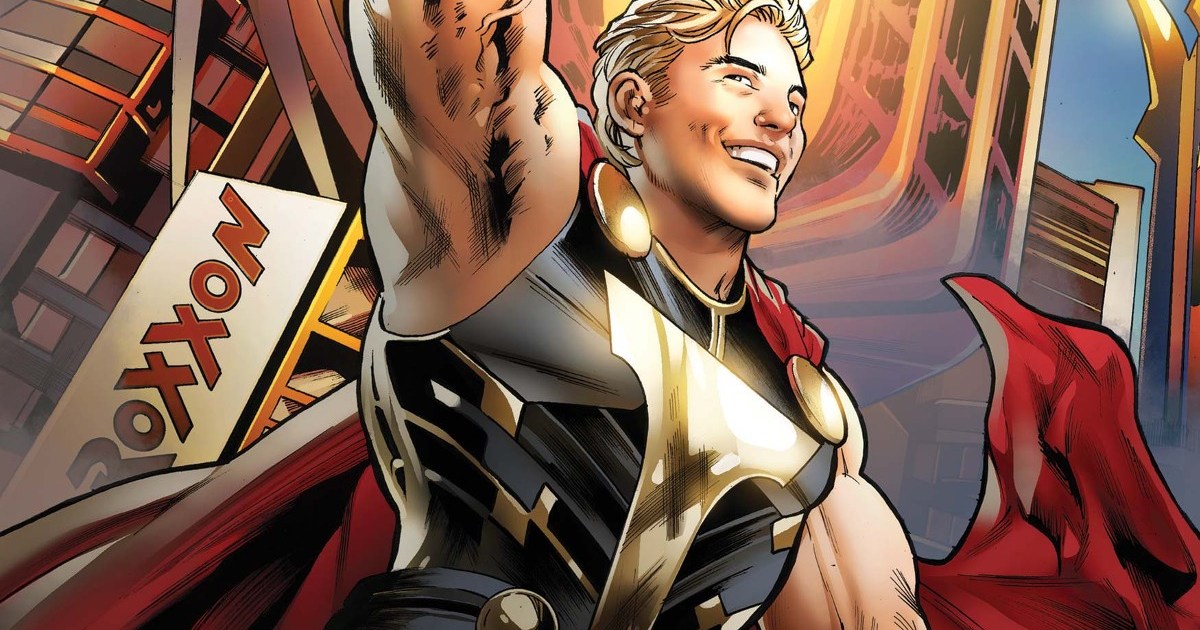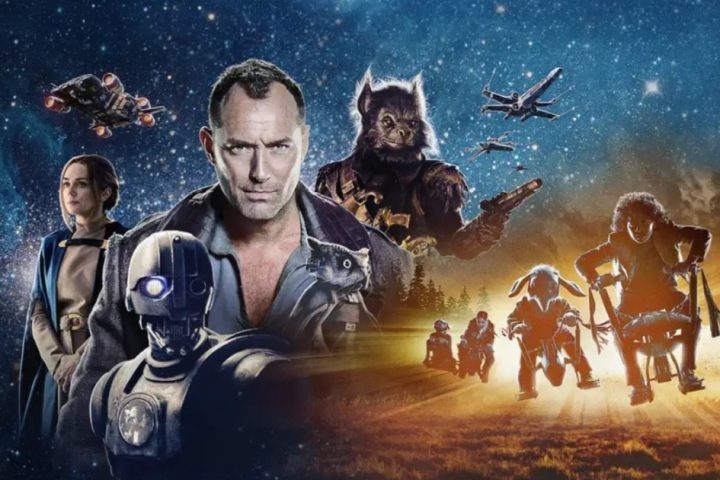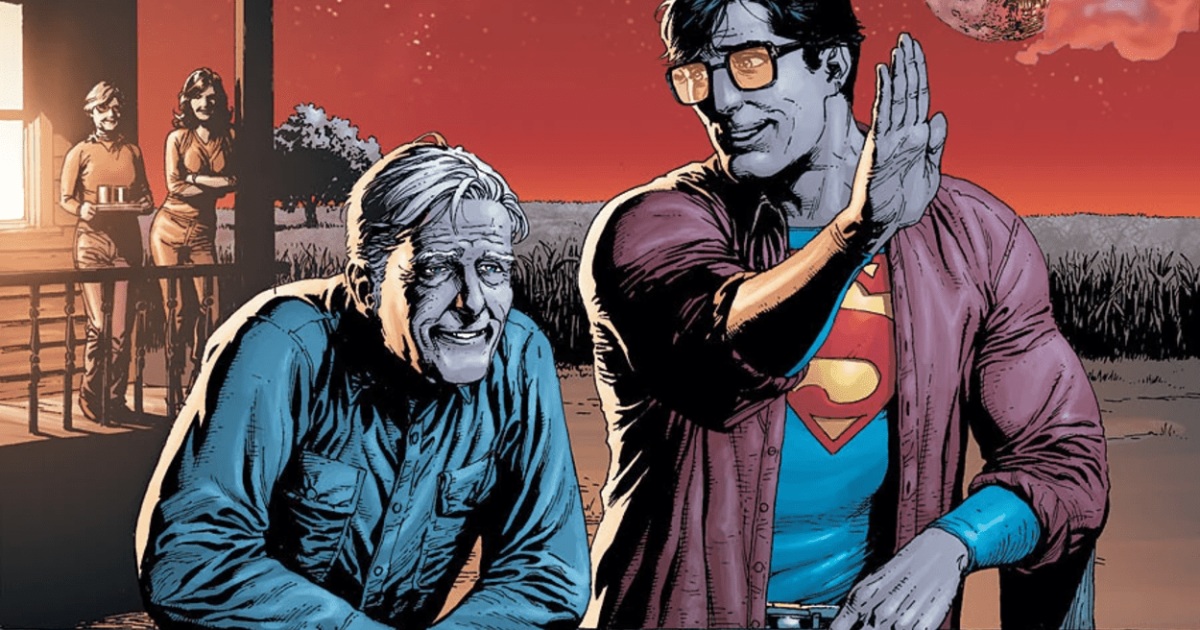For the casual comic enthusiast, Roxxon Presents: Thor #1 might seem a bit perplexing. In reality, it’s not a fresh-off-the-press comic, but rather a continuation of the ongoing Immortal Thor series. It’s also a comically sharp critique of what superheroes could morph into in a world overrun by corporate influence.
Unraveling the Immortal Thor Narrative
The current Immortal Thor series, penned by Al Ewing, delves into the potency of narratives and their impact on the gods. Even though they exist as physical entities in the Marvel Universe, the gods are somewhat swayed by mortal perceptions. Loki, for instance, cautioned Odinson about this, explaining how new narratives could alter history and even the essence of the gods themselves. Loki’s own transformation from the God of Mischief to the God of Stories over the years is a testament to this.
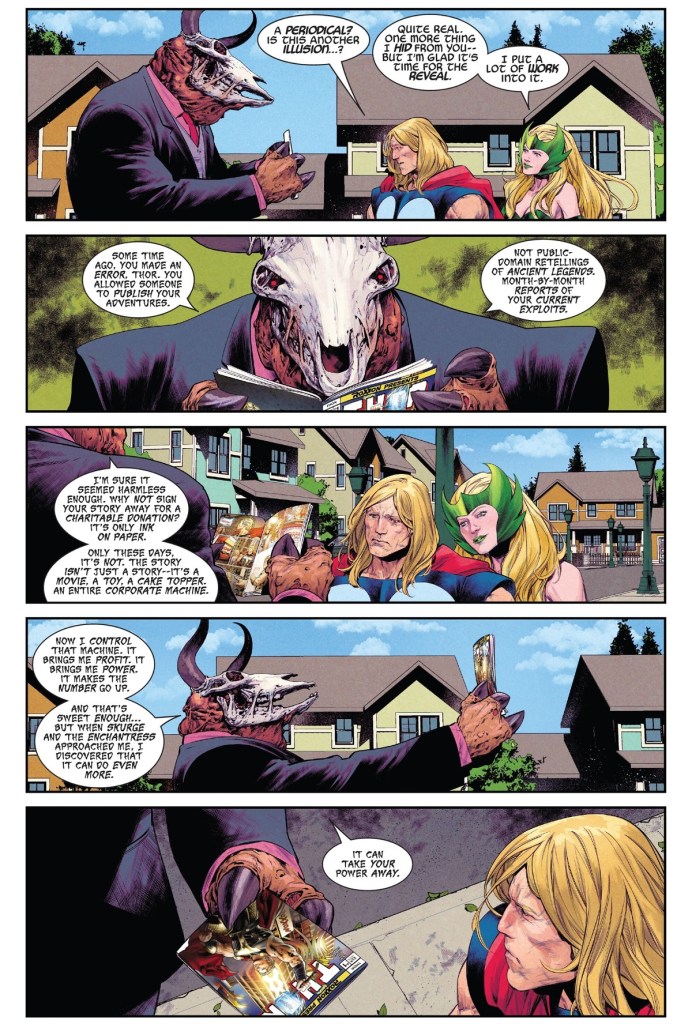
This concept lays the groundwork for the metafiction of the current plot and a new ploy by the Enchantress. In collaboration with the Minotaur, Dario Agger (the present CEO of Roxxon), and the power of narratives, the Enchantress manages to strip Odinson of his power. This is achieved when Roxxon acquires the publisher that prints comics based on Thor’s exploits in the Marvel Universe. They proudly reveal their scheme and present Thor with the first issue of their revamped origin story in Immortal Thor #9. This sets the stage for Roxxon Presents: Thor #1 – the very comic birthed by the villains.
Meet the New Corporate Crusader Thor
The new Thor is a stark departure from the original. Gone is Dr. Donald Blake, the humble healer who moonlights as a Norse god protecting Midgar. In his place is Chad Hammer, a top influencer in AI-based hedge funds and a proud Roxxon employee. Armed with the Mjolnir Premium, a magical hammer that doubles as a digital device, this Odinson charges into battle in a sleek self-driving smart truck, sporting a trendy short haircut.
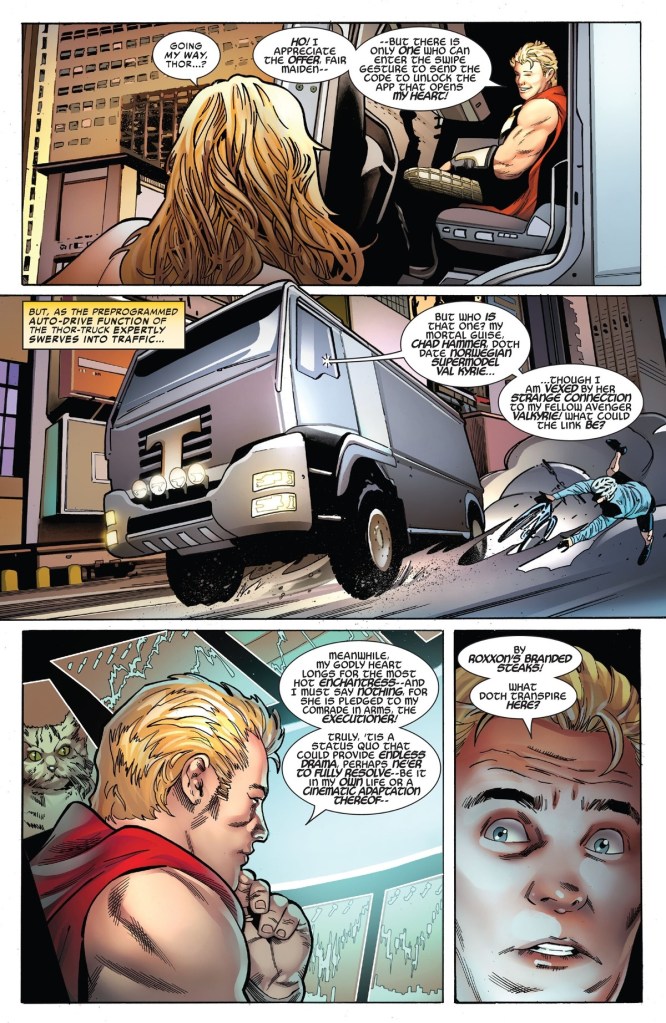
Al Ewing doesn’t hold back in portraying the new Thor as a soulless corporate puppet. The dialogue is riddled with endorsements for Roxxon’s plethora of products. In fact, the new Odinson is more likely to rely on VR helmets and drones (available at a store near you at a fair price, kids!) to combat the evil Loki than his Asgardian strength.
The result is a corporate spin on Captain Planet. The villains are either inherently evil, like Loki, or naive fools who fail to recognize the greatness of the Roxxon corporation. In fact, Thor saves the day by tracking the body odor of the hippies protesting against Roxxon’s business practices. This conveniently sets up an in-comic advertisement for the official Roxxon line of body gels and hygiene products.
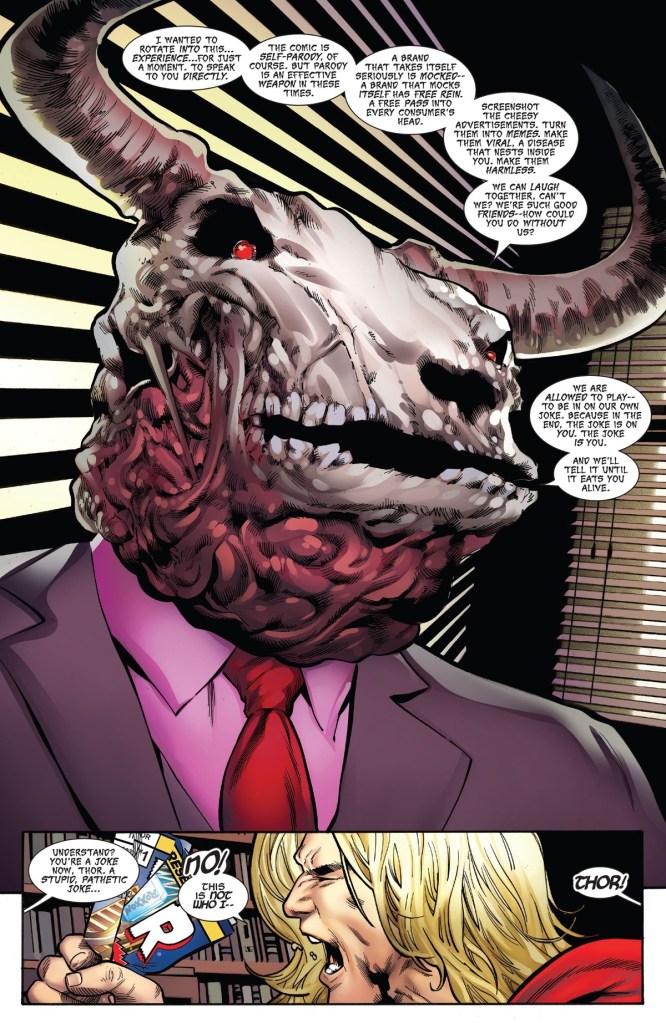
While this could be entertaining as a standalone parody of promotional comics produced as corporate tie-ins, Ewing has a deeper message. The comic also serves as a cautionary tale about the dangers of treating obvious evil as a source of irony. As the reader chuckles at the blatant references to real-world corporate blunders and corruption, the true Thor is battling for his very existence.
Greg Land is the ideal artist to bring this narrative to life. Despite past criticism for his exaggerated character poses and gratuitous cheesecake, his style enhances the cheesy vibe of Roxxon’s commercial-driven comics.
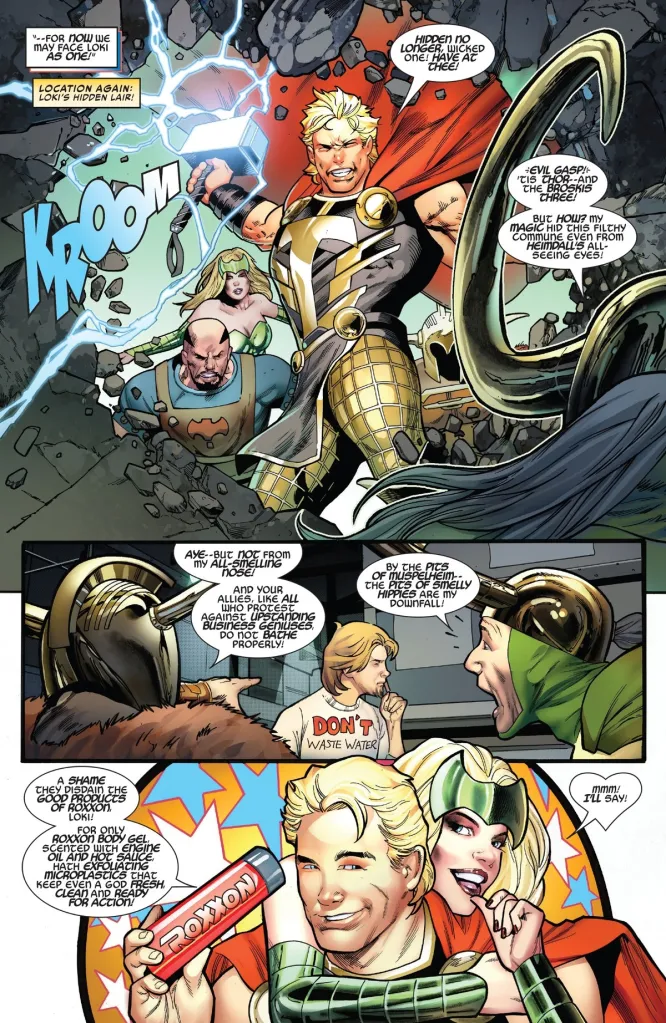
Roxxon Presents: Thor #1 is a thought-provoking and hilariously entertaining read. It’s a commendable comic that follows in the footsteps of the works of Dennis O’Neil and Dwayne McDuffie, and is definitely worth a read.
Score: 5/5
Roxxon Presents: Thor #1 is now available for purchase online and at comic shops everywhere.

